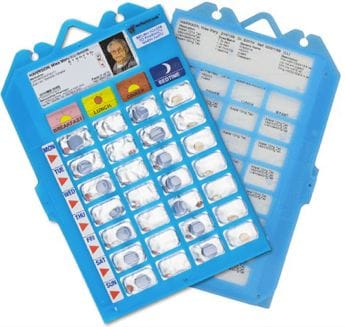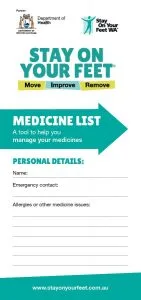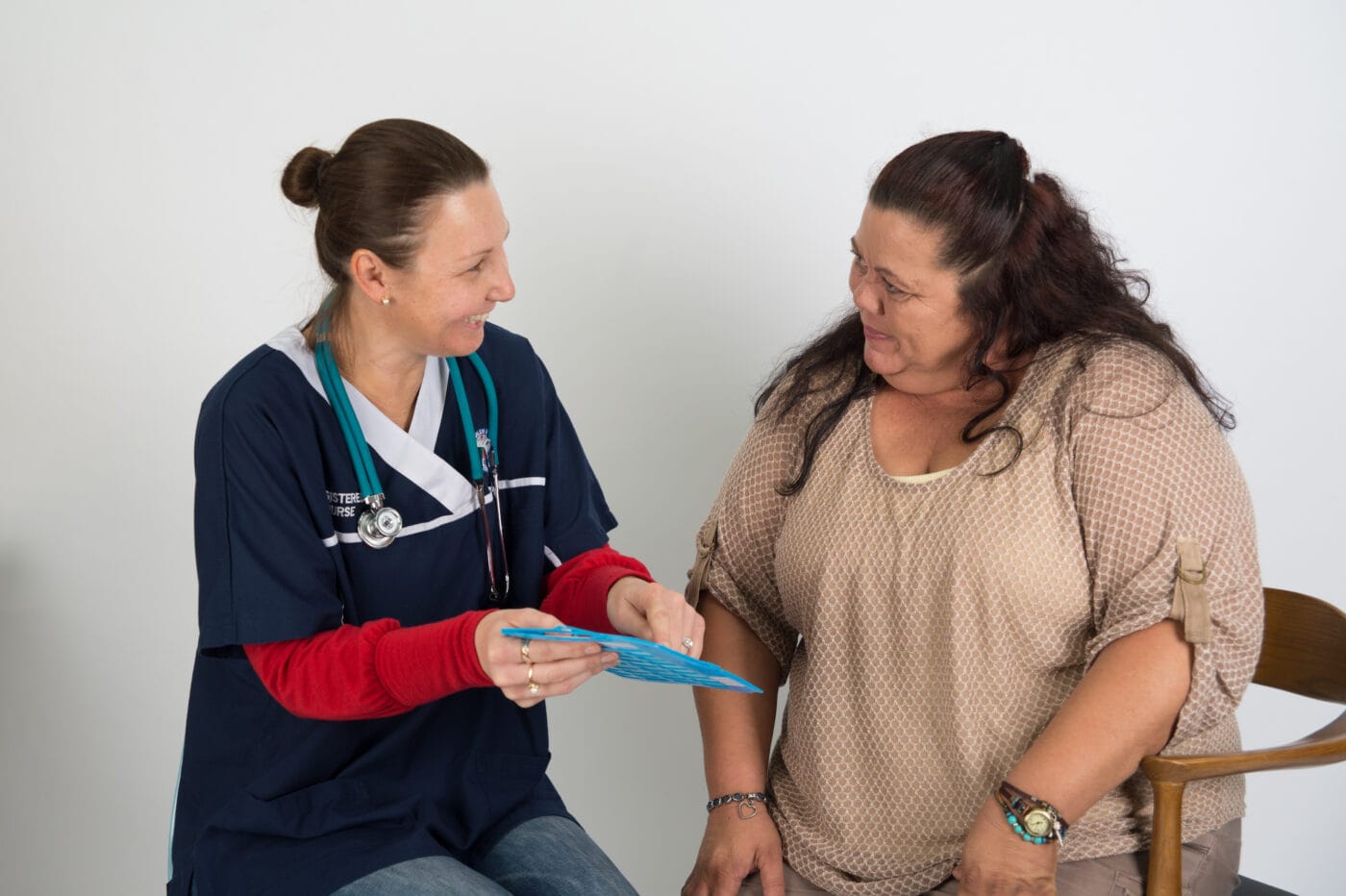Medicines, or medications, include those you get from your doctor, over the counter or natural medications, such as vitamins. As you get older, the changes in your body may mean you need to start taking more medications. You can also react differently to the medications you are already taking. Some side effects of medications can increase your risk of having a fall. Starting a new medication can also put you at risk of falling due to side effects.
Medicines affect everyone differently. Some side effects of medicines can increase your risk of falling, including:
- Feeling tired, drowsy, or confused
- Feeling dizzy, lightheaded, or unsteady
- Having blurred or double vision
- Reduced alertness and coordination
Taking medications to help you sleep can increase your risk of having a fall. Sleeping tablets can continue to affect you after you wake up. They may make you feel sleepy, drowsy, and dizzy, and can cause problems with your balance, increasing your risk of falling.
You may be at risk of a fall if you:
- Take more than one medication
- Take medicines to help you sleep
- Drink alcohol (see Fuel Your Body)
- Have not had your medicines checked by your GP or pharmacist in the last year
It is recommended that you have your medicines reviewed every year and ask your GP or pharmacist to explain the side effects.
For more tips on how to reduce your risk of medicine-related falls, watch our Check Your Medicines with Nancy animation or listen to a retired pharmacist, Peter.
Tops tips for checking your medicines
- Keep an up-to-date list of your medicines. Note the use-by date and the reason you are taking them.
- Book a medicine check or a home medicine review with your GP or pharmacist
- If you take sleeping tablets for longer than two weeks, please ask your GP about a gradual reduction plan
- Do not share medicines with others. Medicines are prescribed for you only, and mixing medicines can increase side effects
- Ask your pharmacist to organise your medicines into a dosage tool, such as a Webster Pack, so you know which medications you need to take and when
- Pay attention to how your body and mind feel. If you notice any changes, such as feeling dizzy, drowsy, depressed, or in pain, please speak to your GP.
What tools can you use to help manage your medications?
Webster Pack or pillbox
A Webster Pack is a sealed weekly calendar that holds your medication. Your pharmacist sets them up for a small fee and illustrates what day and time you need to take your medications. The pack has the details of all your medications and is very easy to follow.

Stay On Your Feet® medicine list
A medicine list is a useful way to keep track of what you are taking.
It is also important to take your medicine list to all medical appointments, so your health professionals know what you are taking and treat you accordingly.

National Prescribing Service (NPS) MedicineWise app
The NPS MedicineWise app can support you to keep track of medications and access important health information. By scanning medication barcodes, it allows you to create a list of your medications. You can also set reminders for when to take medicines and attend health appointments.

Medicine checks and home medicine reviews
Another way you can manage your medicines is to have them checked over by your GP or pharmacist. You can ask about a free medicine check or get a GP referral for a free home medicine review, where a pharmacist will visit your home, check your medicines and talk about any concerns you may have.

Who can help you check your medicines?
Doctors or GPs
If you have any concerns about your medications or how you are feeling, it is best to speak to your doctor or GP at your next appointment. If you don’t have a regular doctor or GP, use Health Direct to find one near you.
Pharmacists
Your pharmacist is a great person to speak to when reducing your risk of falling. They can check your medicines to ensure they are not interacting with each other and that you are only taking the medication you need. They can also help you by showing you different ways to manage your medicines using a medicine list or a Webster Pack.
For more information on your local pharmacies, you can contact the National Prescribing Service, The Pharmacy Guild of Australia and the Pharmaceutical Society of Australia.
There are many factors that may increase the risk of experiencing an overdose. Understanding the risks and know how to manage and mitigate the risks for overdose prevention.
Eating the right nutrients and keeping your mind active is also important for improving your health and preventing falls. Learn how you can Fuel Your Body and Keep a Healthy Mind to prevent falls.








